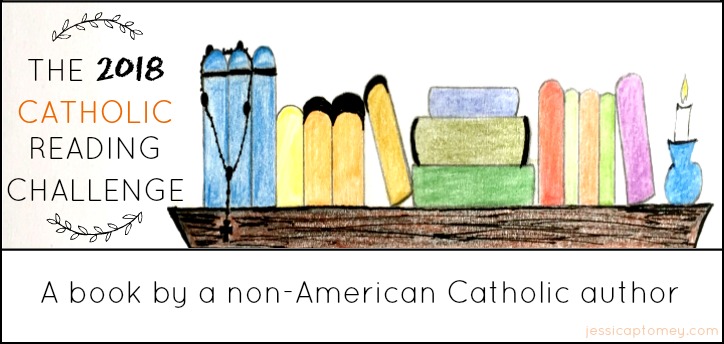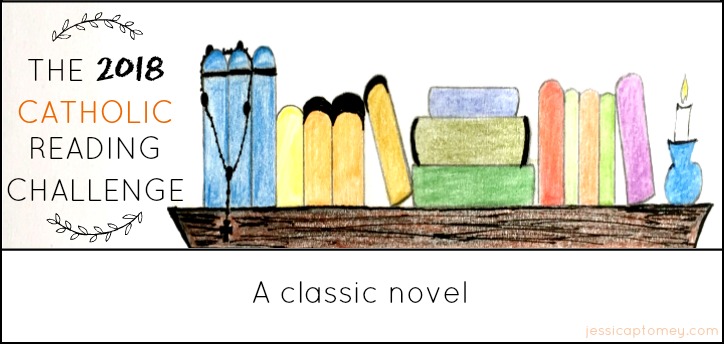I hope your summer reading life is off to a great start! And I hope it includes some picks from the 2018 Catholic Reading Challenge? I am continuing to share what I am reading for the challenge with you. Do you love the witty writing and memorable phrases of Chesterton? Do you love mystery stories? Read on!

Category: “A book by a non-American Catholic author”
My Pick: Father Brown: The Essential Tales by G. K. Chesterton
Who doesn’t love G. K. Chesterton?? He is certainly one of the most quotable modern Catholic writers, and his most well-know book is probably his classic apologetic work Orthodoxy. But I would say that fewer people are as familiar with his non-fiction, particularly his Father Brown short stories. I was in this boat until recently, and I’m so happy to now be acquainted with them. Chesterton wrote many, many Fr. Brown stories with various repeating characters. To my knowledge, though many volumes claim to be the “complete Fr. Brown stories,” there is actually not a book in print currently that contains every last published one. (Feel free to fact-check me, readers!)
I chose the particular collection linked to above because of it’s claim to have the most “essential” ones, and I did find that the order of the stories helped provided back stories on the reoccurring characters. I’m sure there are other great collections out there; so please do share in the comments if you have found one that you love and would recommend. The Fr. Brown series debuted in 1911 with The Innocence of Father Brown (In the public domain and free on Kindle). I think the order in which you read the stories is important, because Fr. Brown — the British sleuthing priest — has a significant history with some of the reoccurring characters.
These stories are a great length to read leisurely, one at a sitting. You will find yourself entertained by the mysterious plot, humored by Chesterton’s wit infused in the character of Fr. Brown, and uplifted by various aphorisms that are woven nicely here and there. These are stories that simply bring delight to a reader by offering so many literary treasures at once. Continue reading →



